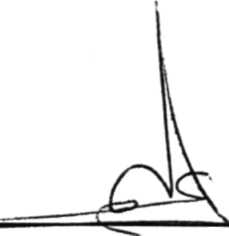CASE NO. CA 17/96
IN THE HIGH COURT OF NAMIBIA
In the matter between
DANIeL HEITA
versus THE STATE
CORAM: FRANK, J. et MTAMBANENGWE, J.
Heard on: 1996.08.12
Delivered on: 1996.08.12
JUDGMENT
FRANK, J. : In this matter there is an appeal against the
conviction and sentence. The appellant was convicted of rape and sentenced to 7 years imprisonment. The attack upon the conviction was three-fold. Firstly it was based on certain alleged irregularities namely the adequateness or otherwise of the magistrate's explanation to the accused that he was entitled to legal representation and secondly the adequateness or otherwise of his explanation to the accused as to his rights of cross-examination and as to the way in which he did or did not assist the accused in exercising these rights to cross-examination. These two points based on irregularities were not contained in the grounds of appeal and as a result the Court will not entertain these two grounds. Thirdly, as far as the merits are concerned the attack was based mainly on the credibility of the complainant and the way the magistrate approached the evidence of the complainant. Much was made of the fact that the complainant was a single witness and the cautionary-rules relating to single witnesses. I must, at the outset, say I am not sure that in the particular circumstances of this case the complainant was actually a single witness.
It was a question of a group of people forming a community watch doing a certain patrol when they saw four persons under suspicious conditions and when they went to investigate they found the complainant there naked and the four persons ran away. Eventually they apprehended two of these four persons, one of which turned out to be the current appellant. It is clear that the complainant was a single witness with regard to the fact as to whether she was raped or not, but as to who her assailants were, the other witnesses can be of some and indeed were of some assistance.
The magistrate, in my view, approached the matter correctly. In fact he very carefully sets out some of the criticisms that are now also levelled against the evidence of the complainant and he very properly also indicated that he was not prepared to accept her evidence in those regards. Especially with regard to the identification of the assailants, he did not accept it, nor the identification parade. He also took into account that she admitted that she had "consumed considerable liquor" and that she "was under the influence of liquor at the time." He also warned himself that her condition led to a reasonable possibility of error on her side when it came to the identification of her assailants. He however made use of the other two witnesses who apprehended the two persons including the appellant and from the corroboration they gave to her evidence he concluded that she was indeed raped. I can find no fault in the approach that the magistrate followed and I am also in agreement with him that on the evidence in toto the only conclusion he could come to was that she was raped in the circumstances she was found and in view of the surrounding circumstances.
In my view there is no merit in the submissions on behalf of the appellant that the appellant was wrongly convicted and the appeal against the conviction must therefore be dismissed.
As I have already mentioned, the appellant was sentenced to 7 years imprisonment. The main thrust on behalf of the appellant against this sentence was that it was shockingly inappropriate. I cannot agree with this at all. In a recent judgment by this Court, in fact in two full-bench judgments sentences were increased where gang rapes were involved and in this case a weapon was also involved in this gang rape. The age of the appellant was taken into account by the magistrate and in my view a sentence of 7 years is not inappropriate nor is it shockingly excessive but it is in line with the sentences which this Court has imposed on appeal and I therefore cannot see any reason to interfere with the magistrate's sentence.
In the result the appeal both against the conviction and the sentence are dismissed.

I
agree

MTAMBANENGWE, JUDGE
ON BEHALF OF THE APPELLANT: ADV G H OOSTHUIZEN
Instructed by: De Jager & Van Rooyen,
Walvis Bay
ON BEHALF OF THE STATE: Instructed by:
ADV H GARBERS Attorney-General